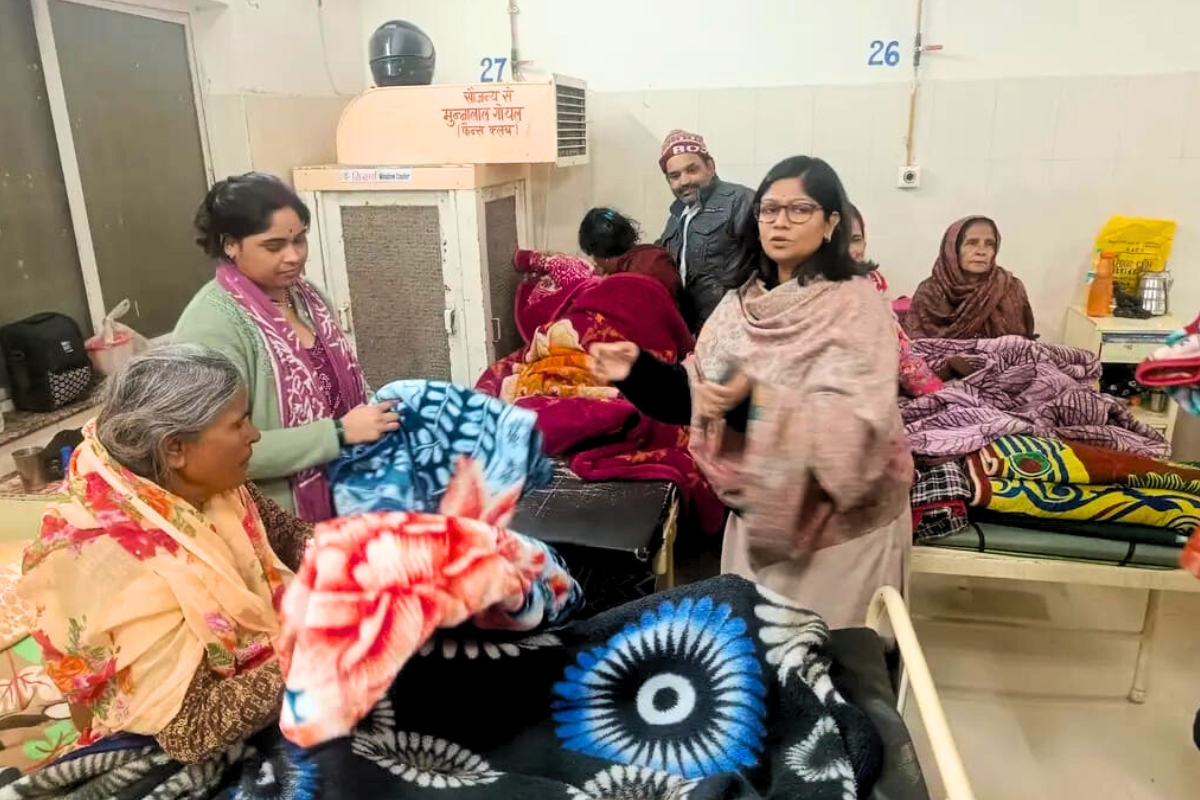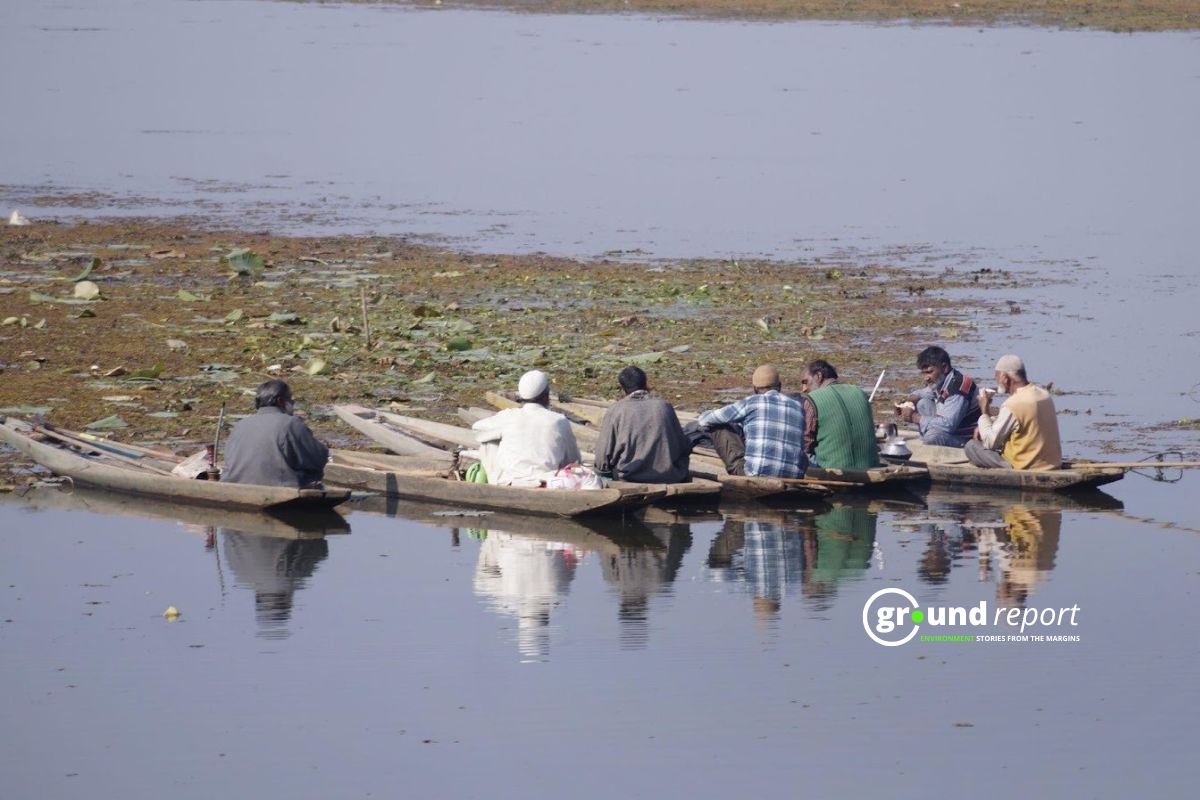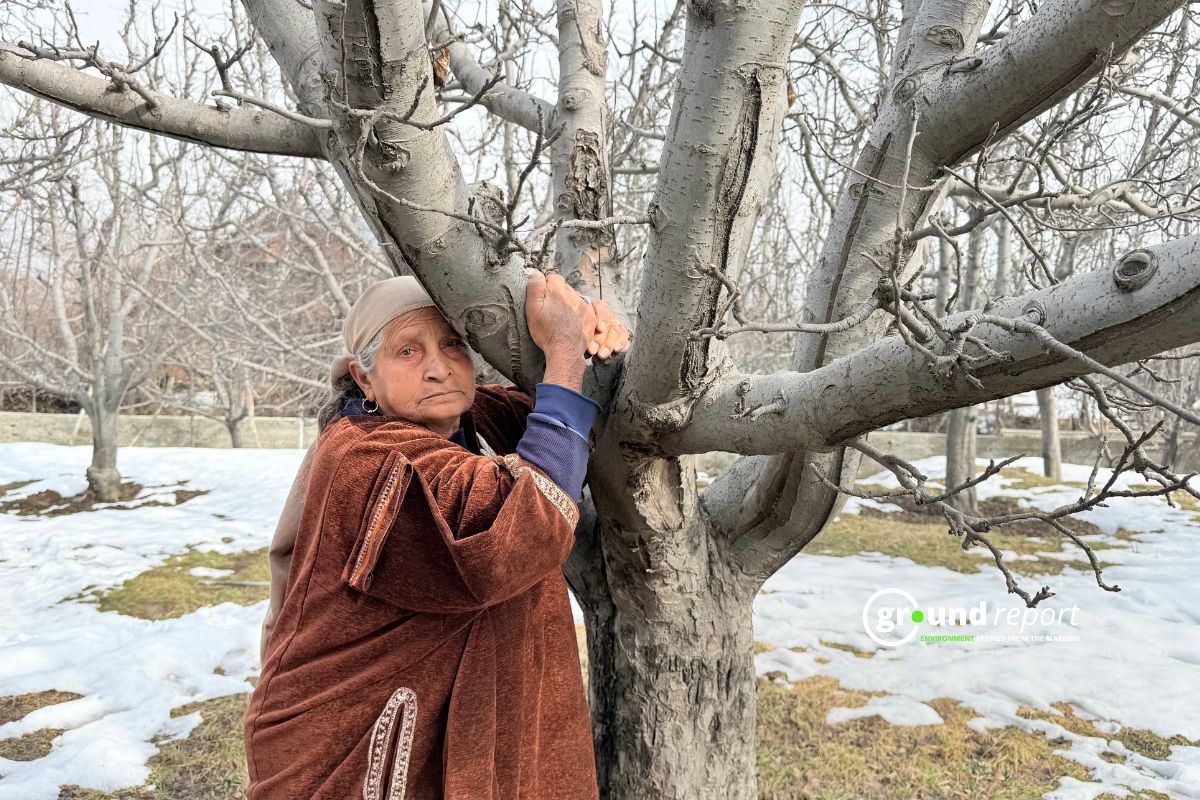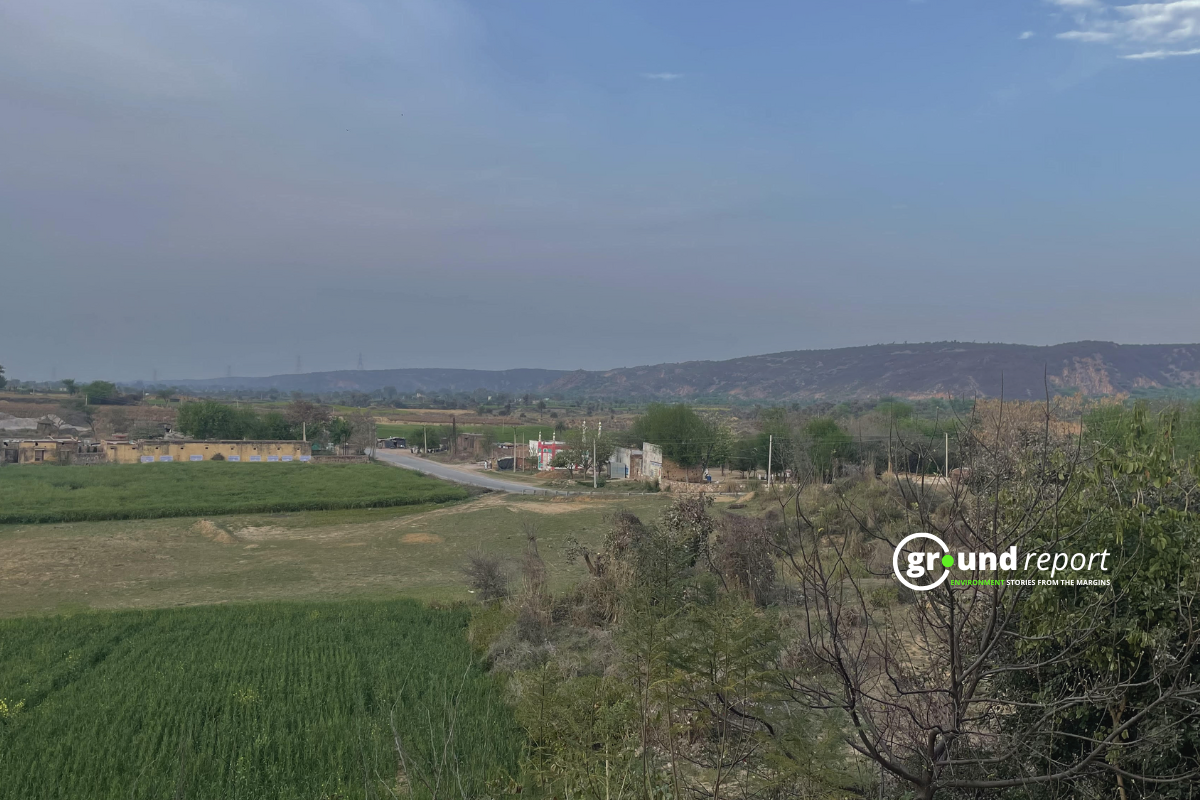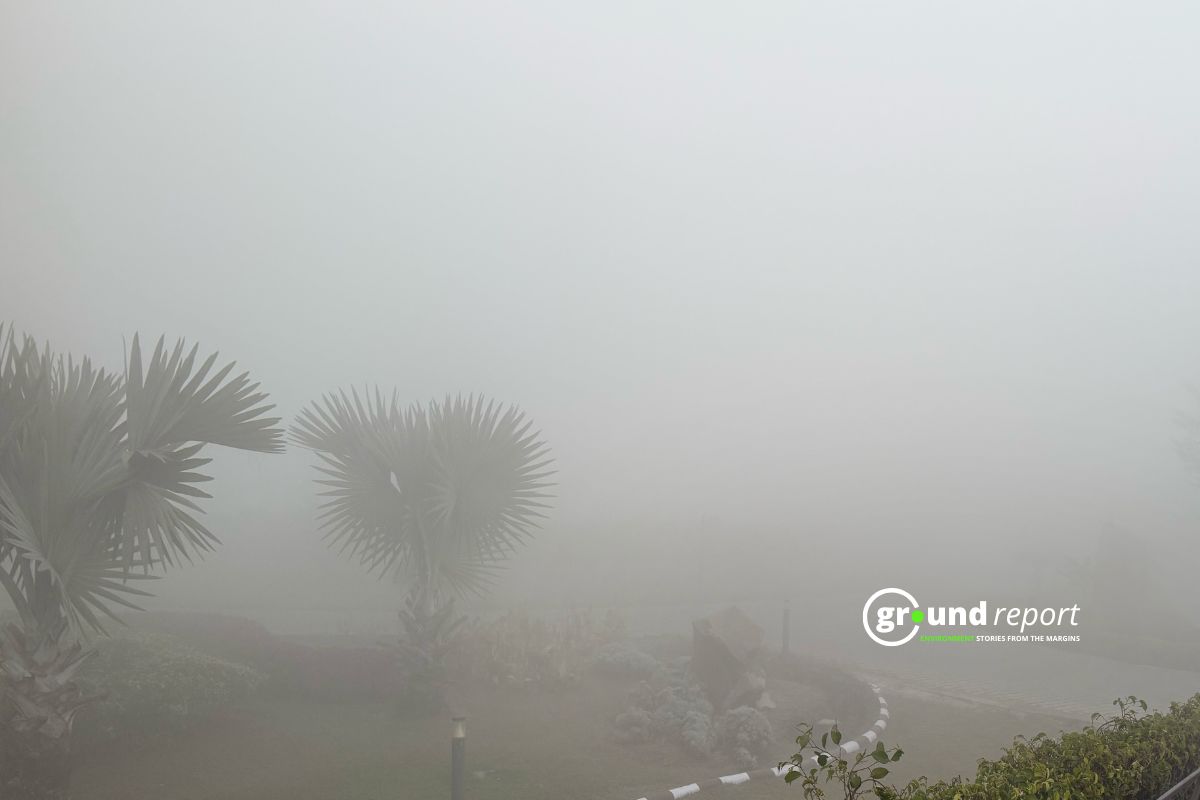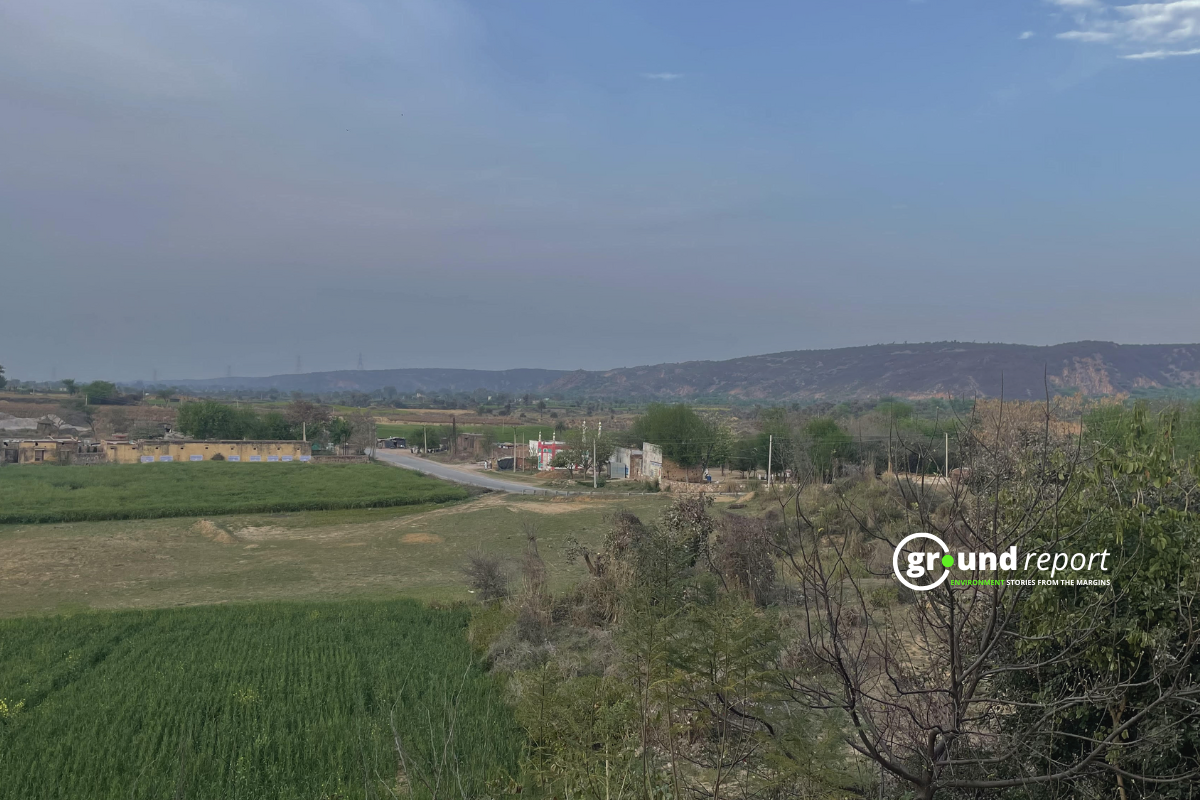It was September 5 when Javid Ahmad Bhat 47 stood by his stranded truck in Baramulla, Kashmir, watching his apples rot under a thin tarpaulin. Bhat owns 25 kanals which is over three acres of orchard land, the source of his family’s income. Two trucks, each carrying the fruit of a year’s labour, were stuck along National Highway 44, the valley’s only all-weather road connecting it to the rest of India.
Stuck on the highway after a landslide, Bhat watched his truckload of apples begin to rot. The fruit had left the orchards looking flawless, shiny skins, firm flesh, but days of delay turned them soft and dark. But now, inside the truck, the apples were collapsing from the inside, leaving black stains across the boxes, he explains.
“All our hard work for the year has gone to waste,” Bhat said. “No one will buy these rotten apples. We have no choice but to throw them away.”
A Harvest Left to Rot
Bhat’s situation reflected the struggle of thousands of apple growers across Kashmir. The highway closure, caused by landslides after heavy monsoon rains, began on August 24, coinciding with the peak apple harvest. Trucks from orchards in Shopian, Pulwama, and Sopore were left stranded for weeks, unable to reach markets in Delhi, Mumbai, and other cities. Families who depend entirely on orchard income faced lost earnings, mounting debt, and uncertainty about the year ahead.
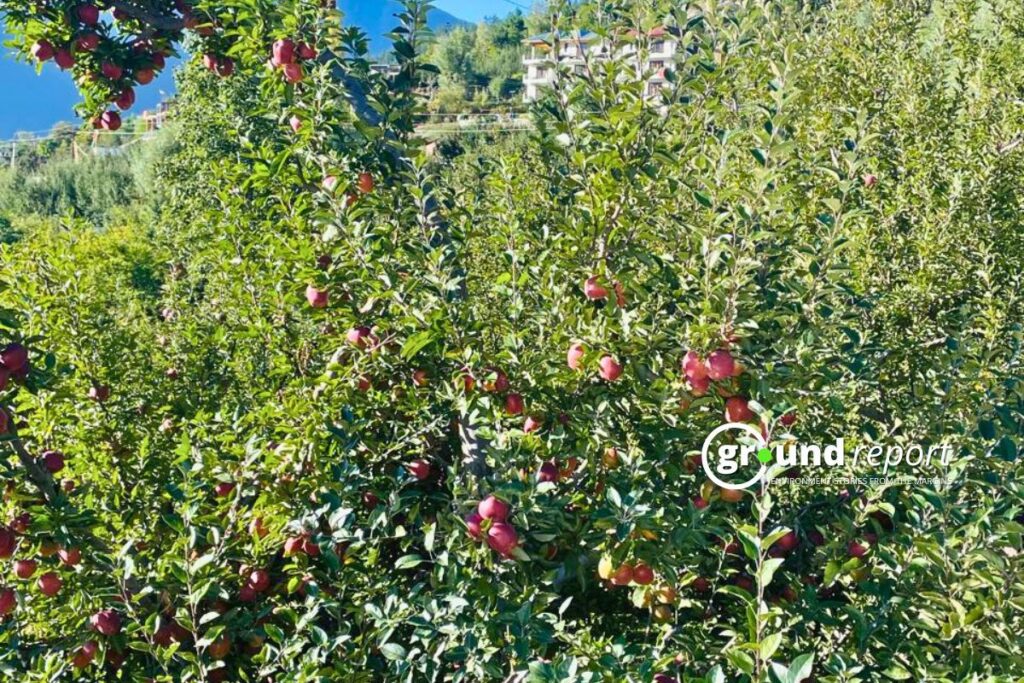
Bhat further added, Maintaining an orchard is expensive. On average, a single kanal of apple trees costs around Rs 35,000–55,000 a year to manage. Of this, nearly Rs 12,000–18,000 goes to labour alone, covering pruning, spraying, and harvesting. Packaging costs have jumped from Rs 40 to Rs 200 per carton. For farmers with larger orchards, the bills quickly climb into lakhs even before packaging and transport are added.
Kashmir’s orchards produce roughly 20–25 million metric tonnes of apples annually, accounting for 70 to 78 percent of India’s total output. The industry is estimated at around Rs 10,000 crore and provides livelihoods to nearly 35 lakh people. A truckload of apples is worth Rs 10–12 lakh, and many trucks carry multiple consignments, multiplying potential losses.
According to Fayaz Ahmad Malik, president of the Sopore Fruit Mandi, nearly 5,000 trucks were stranded along the highway during the closure. “Fruit is rotting in these trucks. Neither the Centre nor the J&K government is concerned about the huge losses incurred by the fruit growers and traders,” Malik said.
The highway closure hit the horticulture sector hard. Mandis were flooded with late-arriving fruit, pushing prices down. In Jammu’s Narwal mandi, a box of Giraav apples that sold for Rs 500/kg now fetched only Rs 100. Cold stores overflowed, leaving traders with mounting losses. Families who had invested in the harvest to cover school fees, healthcare, and loans faced severe financial stress.
Authorities diverted trucks to the Mughal Road, a longer, narrower route connecting Kashmir to Jammu. Drivers reported severe congestion, allowing only a few hours of movement each day. “Three of those hours are lost in traffic jams,” said Muhammad Ashraf, a grower from Pulwama. “By the time our trucks crawl forward, the apples inside are already spoiled.”
Enough is enough
Chief Minister Omar Abdullah called on the Centre to hand over control of the highway to the state if federal authorities could not maintain it. “We have been patient, waiting for assurances, but nothing has been done. Enough is enough,” he said.
Union Minister Nitin Gadkari posted on social media that over 50 earthmovers were working around the clock to clear and repair the highway. A two-lane temporary diversion allowed partial traffic flow, with permanent restoration to follow.
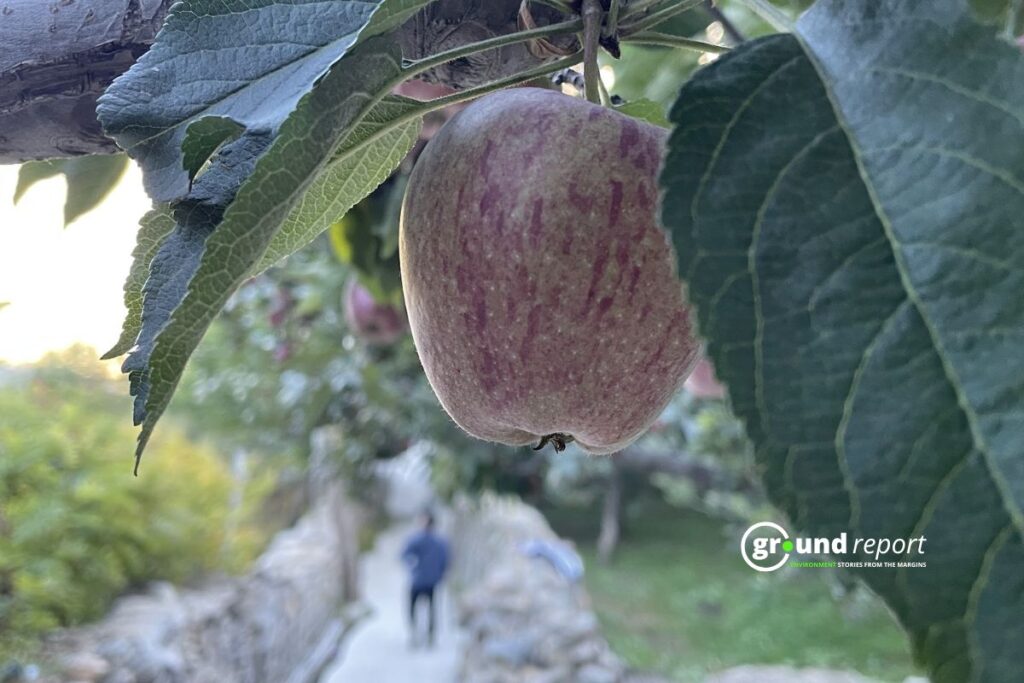
The human toll was visible across the valley. Truck drivers, like Shabir Ahmad at Qazigund, inspected apple crates daily. “We have been stranded here for 20 days. The government has shown no urgency in restoring the road. The losses are beyond imagination,” he said. Farmers unloaded spoiled fruit, searching for places to discard it.
The Kashmir Valley Fruit Growers Union estimated losses from the blockade at Rs 1,000–1,200 crore. Local traders were forced to sell rotting produce at discounted rates or dump it entirely. Apples occupy more than 1.45 lakh hectares of orchards in the valley, with Delicious, American, and Maharaji varieties most common. About 75 percent of Kashmir’s population depends directly or indirectly on horticulture.
Bashir Ahmad Basheer, chairman of the All Kashmir Fruit Growers Union, said the highway’s vulnerability was well-known. “The government should have monitored it 24/7, especially during the rainy season. When heavy rainfall damaged the Jammu sector during peak harvest, we alerted authorities. Urgent restoration was necessary; otherwise, horticulture would suffer tremendously,” he said.
Apple growers emphasized the lack of compensation for repeated losses. Basheer recalled past disasters, including the 2014 floods and COVID-19 lockdown, where growers received minimal support. “A farmer whose produce was worth lakhs was damaged once and got only Rs 2,000. This time will be no different,” he said. Truckers faced financial strain. Anil Kumar, a driver from Jammu, said, “Rain is natural, but government inaction is turning a natural calamity into a man-made crisis.”
Delayed Response
The government introduced limited relief. Lieutenant Governor Manoj Sinha inaugurated a direct Srinagar–Delhi parcel train on September 15. The train, with eight bogies carrying roughly 23 tonnes each, aimed to reduce transit time. “It will increase income opportunities for thousands of farmers,” Sinha said.
Growers criticized the measure as insufficient. Malik said the train’s capacity matched only ten trucks, while Sopore alone sends up to 1,000 trucks on peak days. “From Sopore fruit mandi alone, 400 apple trucks leave for different parts of the country these days. In another 15–20 days, this number will reach 1,000 trucks,” he said.
Indian Railways launched a daily parcel train between Badgam and Delhi from September 13, carrying 160–170 tonnes per trip. “One kilogram of apple transportation will cost about Rs 2.1 from Budgam to New Delhi. It will ease logistics and cost for growers,” said Manoj Singh, additional member of the Indian Railway Board.
Officials noted the temporary nature of highway restorations. Janhvi Jaiswal, media assistant to the NHAI regional officer, said that at Tharad in Udhampur, a 150-metre landslide had buried the four-lane highway and collapsed a 20-metre bridge over Balli Nallah. NHAI created a two-lane diversion with granular material, while permanent restoration is planned.
Before the crisis, the horticulture sector had been growing. The Economic Survey Report 2024 noted that the area under major crops expanded by 10,000 hectares, with production rising by 4.13 lakh metric tonnes over three years. Repeated highway closures now undermine progress, forcing distress sales and threatening the valley’s apple market domestically and internationally.
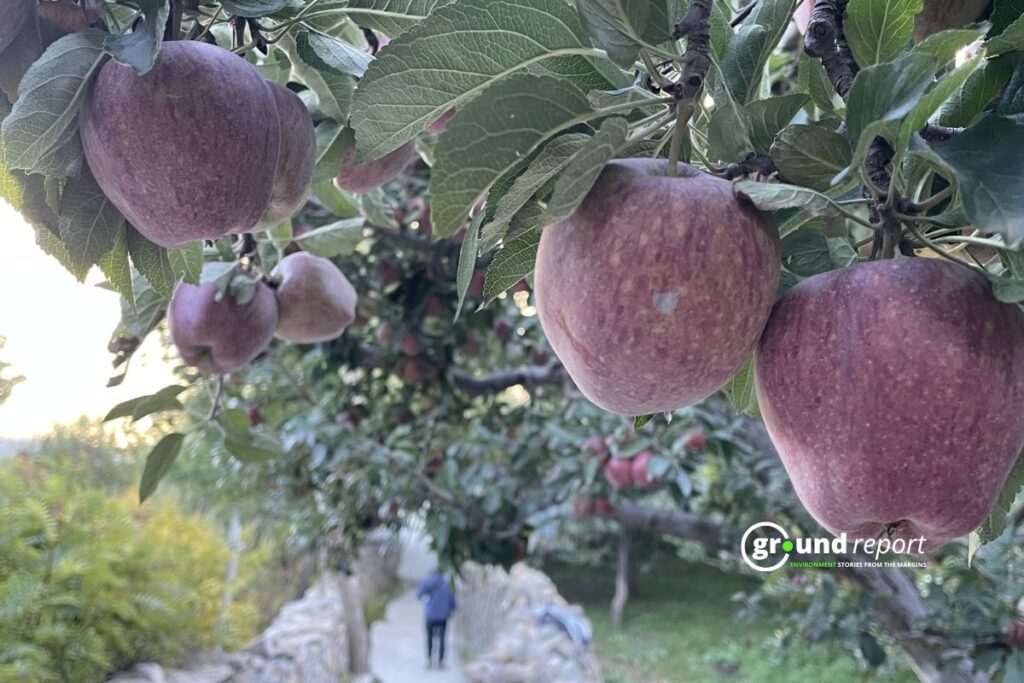
For growers, this year’s crisis is not an isolated event. Extreme weather and recurring road blockades have eroded profits over time. In 2021, untimely snowfall wiped out up to half of many harvests. In recent seasons, floods and highway disruptions have stranded trucks and caused fruit to rot en route.
In 2025 alone, losses due to highway blockades and floods are estimated at Rs 6–7 billion. Many growers expect good yields, but end up with only partial income and are forced into debt, mortgaging land or borrowing at high interest just to sustain their orchards.
The impact on prices was severe. In Sopore, the box price of apples dropped from Rs 600 to Rs 400. Dealers in Jammu reported mostly rotten fruit. Losses for growers and traders in the recent blockade are estimated at over Rs 2,000 crore.
Minister for Agriculture Production and Horticulture Javid Ahmad Dar planned to visit Udhampur and Ramban to assess the highway. He proposed one-way traffic from Srinagar to Jammu for two days to clear stranded trucks. Separatist leader Mirwaiz Umar Farooq urged immediate restoration, calling the loss of a year’s labour “shameful” and warning of further damage to the rural economy.
In Sopore and Anantnag, growers staged protests and market shutdowns to demand urgent government action. Malik said, “Hundreds of trucks are stranded and the fruit is rotting. The government must prioritize release, or the industry will incur losses in hundreds of crores.”
For Bhat, the reopening of the highway offered little relief. His two truckloads of apples, worth over 10 lakh, had already spoiled. “We nurtured these apples since spring,” he said, staring at the blackened crates. “Now they are soft, worthless, and beyond saving. The road is open, but for us, the harvest season has ended in despair.” Across Kashmir, growers share his sentiment, with fragile infrastructure and delayed relief disrupting the annual harvest and leaving families and traders facing mounting losses and uncertain futures.
Support us to keep independent environmental journalism alive in India.
Keep Reading
Small Wild Cats in Big Trouble: India’s First National Report Released
After Tragedy, Families Face Delays in Tiger Attack Compensation
Stay connected with Ground Report for underreported environmental stories.
Follow us onX, Instagram, and Facebook; share your thoughts at greport2018@gmail.com; subscribe to our weekly newsletter for deep dives from the margins; join our WhatsApp community for real-time updates; and catch our video reports on YouTube.
Your support amplifies voices too often overlooked, thank you for being part of the movement.


